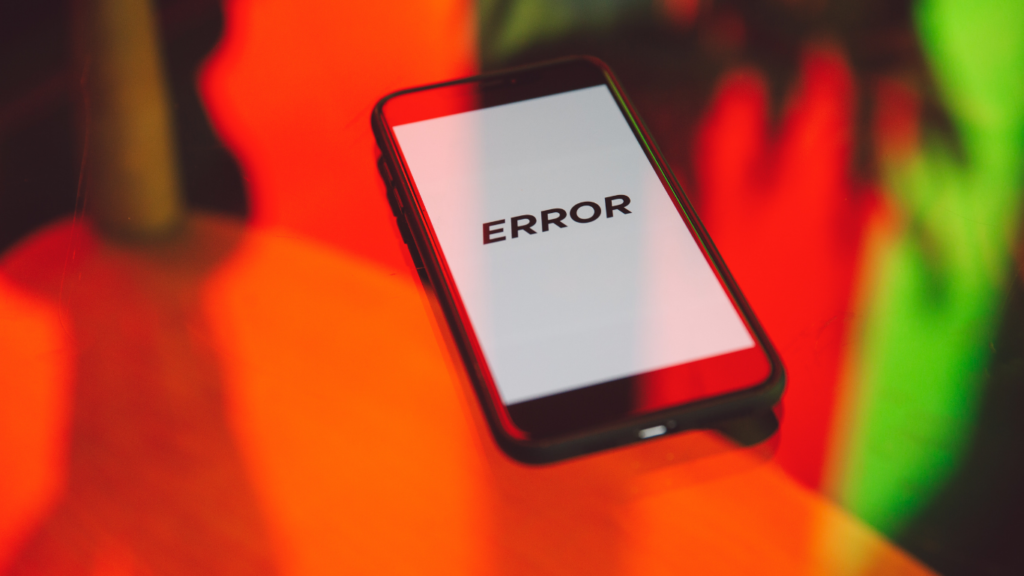Jacksonville, Florida, is a bustling city with a growing economy, from its busy port to its vibrant businesses. But like any modern hub, it faces challenges with computer networks. The term “Jacksonville computer network issue” has popped up often in recent years, especially after a major citywide disruption in September 2024 that cost millions and shook public trust. Network problems here range from slow internet and outages to cybersecurity threats, impacting homes, businesses, and city services. Factors like outdated equipment, stormy weather, and even cyberattacks contribute to these headaches. For a city relying on digital connections for everything from healthcare to logistics, these issues can be costly—businesses lose an estimated $5,600 per hour of downtime. This article dives into what causes these network troubles, their impact, and practical fixes to keep Jacksonville connected. From simple troubleshooting steps to long-term solutions like network segmentation, we’ll explore how residents and businesses can tackle these challenges and build a stronger digital backbone for the River City.
Common Causes of Network Issues
Jacksonville’s network problems stem from a mix of local and universal factors. Outdated equipment, like old routers or wiring in historic buildings, often can’t handle modern demands. The city’s humid, stormy weather can damage hardware, causing frequent disruptions. Network congestion is another culprit, especially during peak hours when too many devices overload systems. Cybersecurity threats are on the rise—Florida ranks third in the U.S. for ransomware attacks, and Jacksonville’s port makes it a target. Human error, like weak passwords or misconfigured settings, also plays a role. Last summer, a major fiber cut downtown knocked out service for thousands of JEA customers, showing how infrastructure issues can hit hard. These causes—aging tech, weather, cyberattacks, and human mistakes—create a perfect storm for network failures, affecting everyone from small shops to large enterprises. Understanding these triggers is the first step to fixing and preventing disruptions in Jacksonville’s digital landscape.
Outdated Equipment
Old routers, cables, and servers are a big reason for Jacksonville’s network woes. Many businesses and homes use equipment that’s years out of date, struggling to keep up with today’s data-heavy tasks like streaming or cloud computing. In older parts of the city, like Riverside, wiring from decades ago wasn’t built for modern internet speeds. Replacing hardware can be pricey, so some delay upgrades, leading to slow connections or crashes. Regular maintenance, like updating firmware, can help, but aging tech often needs a full overhaul to stay reliable.
Weather and Infrastructure
Jacksonville’s weather—humid, stormy, and prone to hurricanes—takes a toll on network hardware. Storms can damage cables or flood data centers, causing outages. A 2024 fiber cut near downtown showed how fragile infrastructure can be, leaving thousands offline. Older buildings, common in areas like San Marco, often have wiring that degrades in humid conditions. Regular checks and weatherproofing equipment can reduce these risks, but Jacksonville’s climate makes it a constant challenge.
Cybersecurity Threats
Cyberattacks are a growing issue in Jacksonville, with Florida ranking high for ransomware. Hackers target weak networks, exploiting outdated firewalls or unpatched software. The city’s port and logistics hubs make it a prime target for data breaches. A 2024 incident initially sparked fears of a cyberattack, though it was later confirmed as hardware failure. Strong passwords, updated systems, and employee training can help prevent these threats.
The September 2024 Network Collapse
In September 2024, Jacksonville faced a massive network failure that halted city services for 72 hours. Municipal websites crashed, call centers went silent, and courthouse systems froze, costing an estimated $1.8 million in taxpayer dollars. IT teams, backed by the FBI and DHS, worked tirelessly to restore services. The cause? Aging hardware, not a cyberattack as many feared. This incident exposed gaps in the city’s IT funding and maintenance, eroding public trust. While services were restored, lingering issues and public skepticism highlighted the need for better infrastructure. Jacksonville’s response, involving local experts and private partners like Cisco, became a case study in crisis management, but it also showed how critical proactive upgrades are to avoid such costly disruptions.
What Happened?
On a Tuesday morning in September 2024, Jacksonville’s municipal network crashed. Employees faced frozen screens and encrypted files, sparking panic. Initial fears of a cyberattack led to FBI and DHS involvement, but the culprit was faulty hardware—a router flagged for replacement years earlier. The outage disrupted everything from court filings to utility payments, leaving residents frustrated. IT teams worked around the clock, but recovery took days, revealing the city’s outdated systems.
Lessons Learned
The 2024 outage taught Jacksonville the value of proactive maintenance. Aging hardware must be replaced before it fails, and IT budgets need priority over less critical projects. The city’s quick response, with help from UNF professors and companies like Microsoft, showed the power of collaboration. Regular network health checks and segmented systems could prevent future chaos. This incident is now studied by other cities as a model for resilience.
Impact on Businesses and Residents
Network issues hit Jacksonville hard. Businesses, especially in high-traffic areas like downtown or the port, lose thousands per hour of downtime—$5,600 on average. Slow speeds frustrate remote workers and shoppers, while outages disrupt medical clinics and law firms. Residents face dropped calls or spotty Wi-Fi, making daily tasks like streaming or studying a hassle. The 2024 city outage showed how even public services grind to a halt without reliable networks. Weak connectivity also hurts Jacksonville’s growth, as businesses hesitate to invest in a city with unstable digital infrastructure. These disruptions affect productivity, trust, and the city’s reputation as a tech-friendly hub.
Economic Losses
Network downtime is a financial nightmare for Jacksonville businesses. A single hour of outage can cost $5,600, hitting small retailers and large logistics firms alike. Slow speeds delay transactions, frustrate customers, and hurt sales. The 2024 city outage cost taxpayers $1.8 million, showing how public and private sectors both suffer. Investing in reliable networks is key to keeping Jacksonville’s economy thriving.
Daily Life Disruptions
For residents, network issues mean more than just inconvenience. Slow internet disrupts remote work, online classes, and even basic tasks like paying bills. In areas like Arlington, weak Wi-Fi signals create “dead zones,” frustrating families. During the 2024 outage, residents couldn’t access city services, from utility payments to court records, highlighting how deeply networks are woven into daily life.
Practical Solutions for Network Issues
Fixing Jacksonville’s network problems requires a mix of quick fixes and long-term strategies. Start with basics: restart routers, check cables, and update firmware. For businesses, managed IT services from local firms like Venture Pointe offer 24/7 monitoring. Upgrading to fiber internet, like AT&T’s, can boost speeds. Network segmentation—splitting systems into smaller parts—limits damage from failures or attacks. Training staff to spot phishing emails and using WPA3 encryption strengthens security. Regular maintenance and weatherproofing equipment help prevent weather-related issues. Jacksonville’s IT community, including firms like BlueWave Computing, offers free assessments to catch problems early. Combining these steps ensures smoother, safer connectivity.
Quick Troubleshooting Tips
When facing a network issue, start simple: reboot your router and check all cables. Use a Wi-Fi analyzer app to spot interference from nearby networks. Update router firmware to patch vulnerabilities. If devices won’t connect, verify passwords and Wi-Fi settings. For persistent problems, local IT firms like TechMedic JAX can diagnose deeper issues, often for free.
Long-Term Fixes
For lasting solutions, upgrade outdated hardware to handle modern demands. Switch to fiber internet for faster, reliable connections. Implement network segmentation to isolate failures or attacks. Schedule regular IT audits with firms like Synergy IT Solutions. Train employees on cybersecurity to prevent breaches. These steps build a resilient network for Jacksonville’s future.
Jacksonville’s Path to Digital Resilience
Jacksonville’s network issues are a wake-up call, but they’re also a chance to grow stronger. The 2024 outage showed what happens when systems are neglected, but it also highlighted the city’s ability to bounce back. By investing in modern hardware, prioritizing cybersecurity, and partnering with local IT experts, Jacksonville can build a robust digital backbone. Residents and businesses can help by staying proactive—updating systems, training staff, and seeking professional support. The city’s response to the crisis, with help from UNF and companies like Cisco, sets a model for others. With the right steps, Jacksonville can turn its network challenges into a story of innovation, ensuring connectivity for its growing economy and vibrant communities.
Community and Expert Collaboration
The 2024 outage proved the power of teamwork. UNF professors, local IT firms, and companies like Microsoft worked together to restore services in 72 hours. Jacksonville’s Cybersecurity Task Force offers free resources to train businesses and residents. Partnering with local experts ensures faster, tailored solutions for the city’s unique challenges.
Building a Stronger Future
To stay connected, Jacksonville must prioritize IT funding and regular maintenance. Upgrading to fiber, segmenting networks, and weatherproofing infrastructure are key. Encouraging businesses to adopt cloud solutions and train staff on security can prevent future disruptions. By learning from past mistakes, Jacksonville can become a model for digital resilience.



